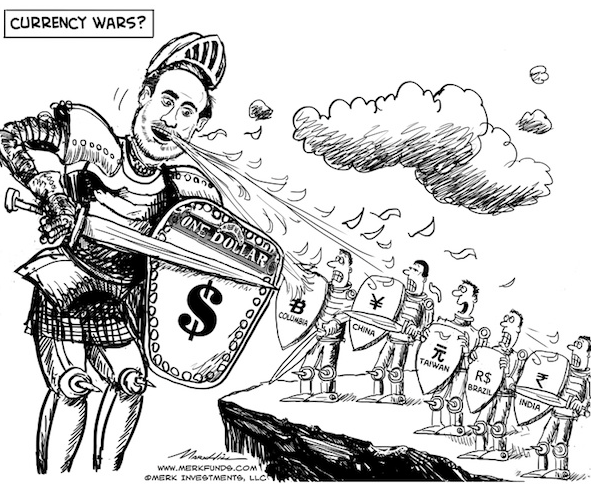Follows that of South Korea and China

Bank of Thailand governor Veerathai Santiprabhob just made some comments in Bangkok about the appreciating Thai baht - saying that the central bank is trying to ensure that the baht is not too volatile.
He adds that the recent appreciation in the baht was due to a weak dollar and Thailand's current account surplus. He also says that the central bank "is not targeting any particular level" for the baht.
This of course comes after Thailand's prime minster last week asked government agencies for an intense focus on the exchange rate as the rising baht could affect the tourism industry in the country.
The continued weakening in the dollar this year is certainly sparking a sort of currency wars background in Asia - with China also stepping in as well as South Korea.
Even ECB officials are starting to get in on the act by jawboning the euro in the past week - though it has done little to help.
There's still a long way to go for things to actually reach that point, but it already looks like central bankers and government officials are taking no chances when the dollar remains so fragile - and we're only in January.

Asian currencies' performance against the US dollar so far this year



